'Not Alone': Navalny Supporters Find Solace In Election Gatherings
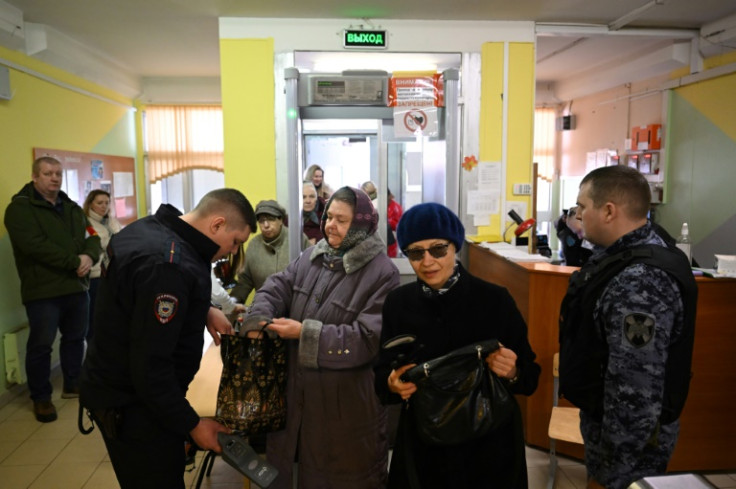
The Russians who came to cast a protest ballot in Moscow on Sunday had little hope for political change, but took comfort from knowing they were not alone in opposing Vladimir Putin's hardline rule.
Defying the threat of arrest, they formed unusually long queues outside polling stations on Sunday, heeding a call by late opposition leader Alexei Navalny to vote at midday.
The crowd paid hommage to Navalny, Vladimir Putin's most prominent critic, whose death in mysterious circumstances in an Arctic prison last month had left Russia's opposition disparaged.
"Year after year, we try to find ways to express our opinion regarding what's happening in Russia," said 33-year-old IT specialist Olga Mironenko, outside a polling station in the capital.
The Kremlin has outlawed any criticism of Putin or the authorities, a repressive turn that has accelerated since Moscow launched its offensive on Ukraine in February 2022.
The crackdown has sent most high profile critics fleeing into exile or arrested and put behind bars.
It has also forced Russia's remaining dissidents to find alternative ways to express their dissent.
Sunday's "Midday against Putin" protest was "the only way to express my position in the current circumstances," said 21-year-old advertising manager Denis.
The OVD-Info police monitoring group on Sunday recorded dozens of arrests across nearly 20 cities in Russia for protest actions linked to the elections.
Prosecutors had warned residents that taking part in "unsanctioned" public rallies is a criminal offence.
Putin's victory in the contest is a foregone conclusion, with no genuine competition on the ballot paper.
Denis had cast his ballot at a school where Navalny scored his highest result -- 70 percent -- in his failed bid to become Moscow mayor in 2013.
"Voting is a way of honouring Navalny," he said.
The death of Putin's top critic -- which allies have blamed on the Kremlin -- triggered outrage both abroad and at home.
His funeral earlier this month brought tens of thousands out onto the streets in the southern Moscow district of Maryino where he used to live.
Residents casting ballots at a polling station where Navalny used to vote -- just a few metres from the church where his funeral service was held -- also paid hommage to the Kremlin critic.
"I came to give my farewell to him. He is a hero to me," said Natalya.
With a mischievous smile, the 65-year-old pensioner told AFP she had spoiled her ballot paper.
Coming out of the same polling station was 52-year-old Olga, who rejoiced after meeting "people who think like me".
"I'm not alone," she said, setting off with her son towards the Borisovo cemetery, where Navalny was buried in mid-February.
Many had the same idea: just over an hour after the "Midday against Putin" protest, Navalny's supporters crowded around his grave, barely visible under piles of bouquets.
They slipped mock-up voting slips featuring Navalny's name between the flowers.
"The candidate that we wanted," said one message, left tied around a bouquet.
Regina, 33, was saving the numbers of human rights lawyers on the phones of older women who had just given loud, impassionate tirades against the Kremlin.
She told AFP that she wanted to fight against "the feeling that has been methodically built up in people, to make us feel that we are the minority."
Regina said that it was nearly impossible to gauge public opinion in a repressive state, with surveys unreliable.
"We can understand what is going on only by speaking in the kitchen," she said, a reference to the Soviet-era dissident tradition.
"I'm not a superhero who wants to go to jail," she said -- an apparent reference to Navalny who had flown back to Russia knowing he faced imminent arrest.
"But we live in a country where we will go to jail if we say our truths. So when I come to moments like this and see a lot of people, I realise that we are not alone," Regina said.
Navalny had been Putin's biggest challenger for a decade, blasting rampant corruption and refusing to back down after being poisoned.
Even from his Arctic prison colony -- one of the harshest in Russia -- he had called on his supporters not to be afraid.
"This man was our hope... The only thing we had left was hope. And it died with him," said 27-year-old Margarita, tearing up.
She said that she felt constantly in danger of being detained, before pointing at the crowd.
"But when you are in this mass of people, you feel so supported that you are not afraid of anything."
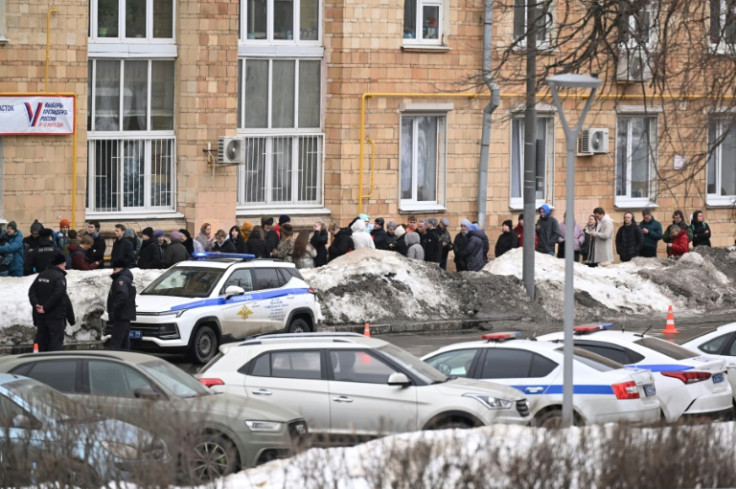
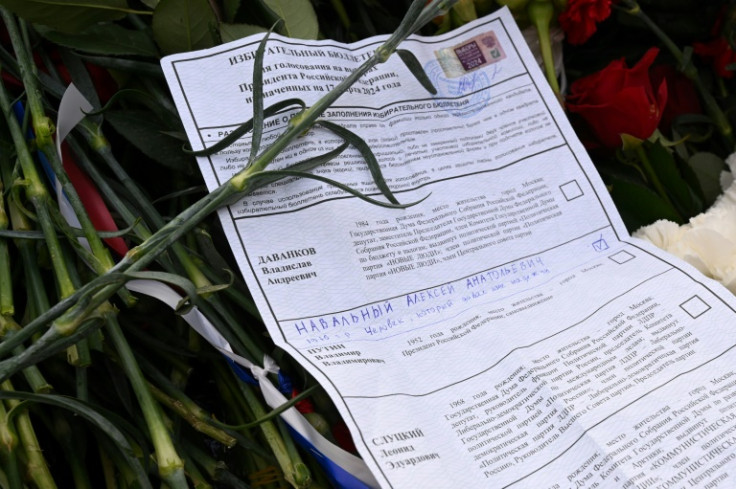
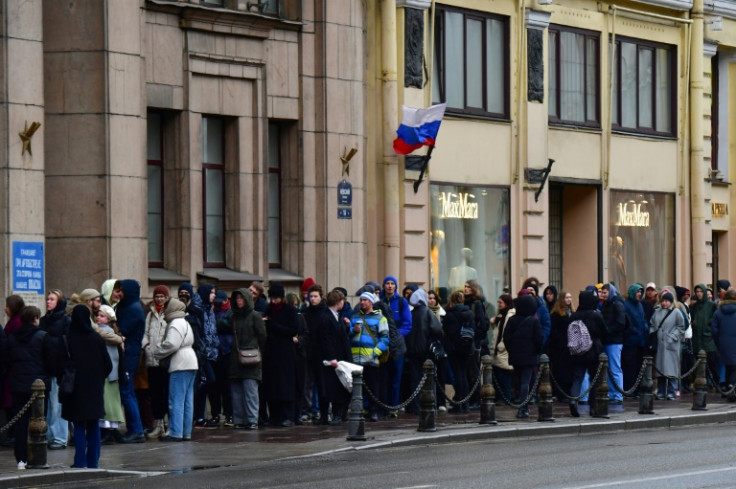
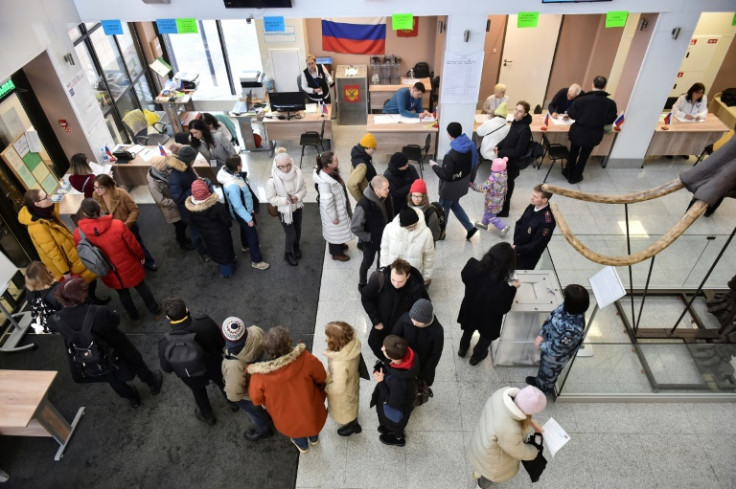
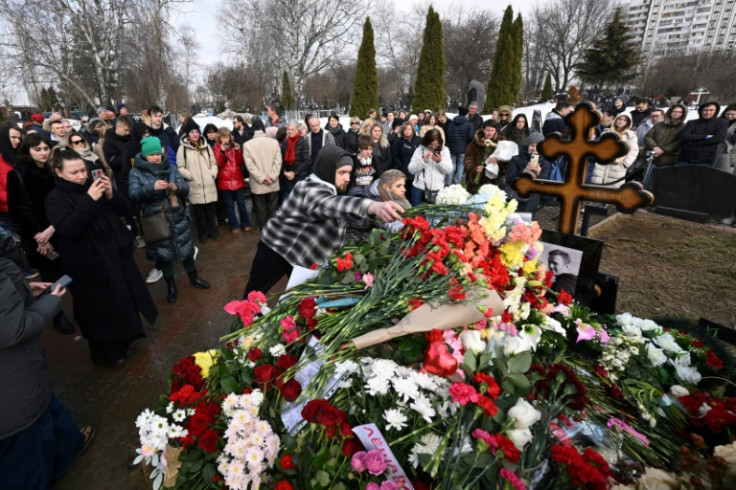
© Copyright AFP 2024. All rights reserved.






